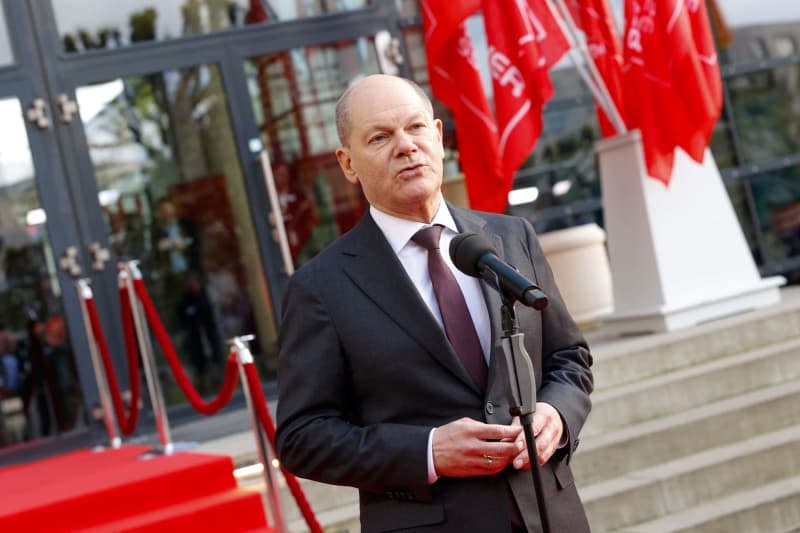Scholz asks Netanyahu in phone call to continue to avoid escalation

- Oops!Something went wrong.Please try again later.
- Oops!Something went wrong.Please try again later.
- Oops!Something went wrong.Please try again later.
In a telephone conversation with Israeli Prime Minister Benjamin Netanyahu, German Chancellor Olaf Scholz once again warned against an escalation of the situation in the Middle East.
Netanyahu informed Scholz about the situation in the region during the conversation on Sunday, according to the German government's spokesman, Steffen Hebestreit. "The chancellor emphasized that the aim now is to avoid an escalation and a regional conflagration," Hebestreit said.
Scholz also explained the decision of the heads of state and prime ministers at the European Council to impose further sanctions on Iran.
Scholz confirmed that the German government would continue to coordinate closely with its partners in the Group of Seven (G7) and in the European Union.
In response to the major Iranian attack on its soil last weekend, Israel launched a counter-attack on military targets in Iran on Friday, according to media reports. However, Iran is playing down the attack as a sign of a possible de-escalation. Israel is also not commenting on it.
Iran's massive missile and drone attack on Israel was preceded by a missile attack on the Iranian embassy compound in the Syrian capital Damascus, in which two Iranian generals and other employees were killed. This attack was attributed to Israel.

